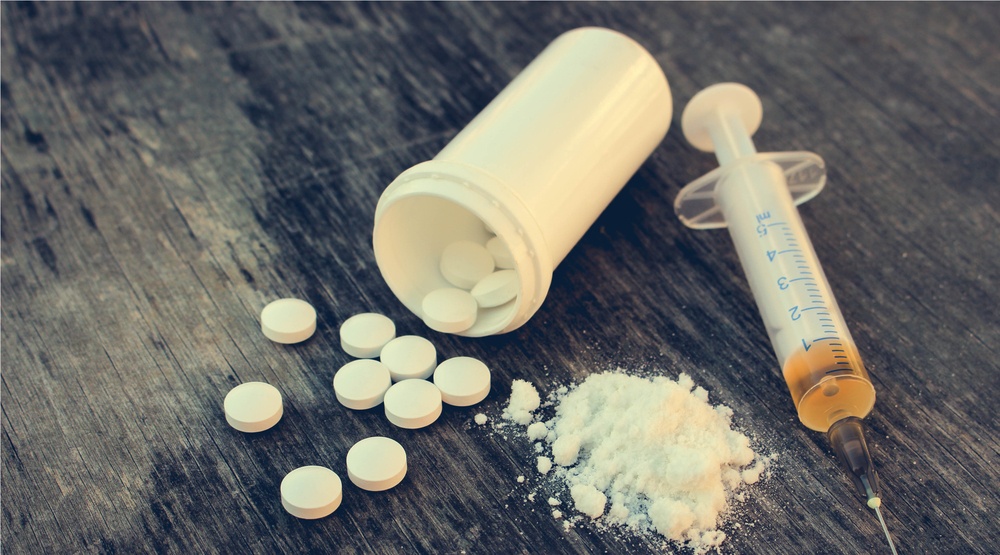
Decriminalizing possession is a start but it isn’t enough to stop the opioid crisis alone.
Decriminalization isn’t legalization – but it’s a start. British Columbia will be the first province in Canada to decriminalize possession of small amounts of illicit drugs.
British Columbia has been granted an exemption under the Controlled Drugs and Substances Act. As of January 2023, the federal exemption will remove criminal penalties for people in possession of certain illicit substances provincewide.
People over 18 in B.C. will be able to carry up to 2.5 grams of opioids, cocaine, methamphetamine, or MDMA for personal use without risking arrest, charges, or drug seizure.
This is a lower threshold than the 4.5 grams that the province had proposed when it applied for a Section 56 exemption to the CDSA last November, brought down by Health Canada. The exemption will not apply on school grounds, at childcare facilities, in airports, or to members of the military.
A good first step, or too little, too late?
Some people, including Vancouver mayor Kennedy Stewart, have praised the federal and provincial governments. Their actions have been interpreted as a sign that they are moving away from treating substance use as a criminal issue and closer to treating it as a mental health issue. The mayor called it “a historic, brave and groundbreaking step in the fight to save lives.”
When mixed with fentanyl, benzos are particularly dangerous because they do not respond to naloxone.
Naloxone is a medication used to reverse the effects of opioids during an overdose.
“We see month after month, year after year, hundreds of our friends and neighbours dying as a result of the toxic drug crisis, and we just have not been able to get a handle on it,” said Lapointe in a recent interview with CBC’s The Current.
“We virtually never see a death that is solely one substance. They are all mixed drug overdoses, and very often, people don’t know what they are taking.”
Lisa Lapointe, BC’s chief coroner
It has been almost seven years since B.C.’s then-provincial health officer Dr. Perry Kendall declared a public health emergency due to a significant increase in drug-related overdose deaths.
Toxic overdoses have become the leading cause of unnatural death in the province, claiming the lives of more than 9,500 people—between five and seven people per day. Overdose is currently the leading cause of death in B.C. for men between the ages of 30 and 49.
Safe supply is more effective than decriminalization
The federal government paid special attention to what law enforcement had to say. The possession threshold was reduced by two grams based on feedback from police.
But advocates say that the voices of drug users should carry more weight than the police.
“Drug users are the folks that we need to listen to, and they’re the most knowledgeable about what they need and about what might make some changes in the crisis for them,” Sarah Blythe, executive director of the Overdose Prevention Society (OPS), told Leafly.
“[This exemption] is not the thing that’s going to save lives,” Blythe says. “I’ve always thought that the priority should be safe supply.”
Blythe was hoping for the federal government to pass a bill that went several steps further. Bill C-216, a private members bill by Courtenay-Alberni MP Gord Johns, proposed to decriminalize personal possession, expunge criminal records, and create a safe supply. The bill was rejected by the federal government on June 1.
“I feel like we need to make leaps and bounds in order to save lives, and it feels like we’re just slowly piddling along,” Blythe said.
Tweets: reactions from advocates
Get out your tiny scales British Columbia
The measure isn’t all bad. Although the threshold of 2.5 grams is low. Blythe said she does see people having their drugs taken away. The exemption could help to relieve some pressure on drug users.
Advocates believe he exemption is ineffectively reducing harm for drug users. Police argue that it will be a challenge to enforce.
“Do the police need to carry little scales around to determine where the cutoff is? And is it 2.6 or 2.7 grams?” said Chief Donovan Fisher of the Nelson Police Department to a reporter with the Castlegar News.
“Is the policy going to be, that’s seizable and arrestable, or is their discretion built-in?
BC will be the first province in Canada to decriminalize small amounts of drugs. It is not the first jurisdiction in North America to do so. In 2020, Oregon became the first U.S. state to remove criminal penalties for the possession of certain drugs.




